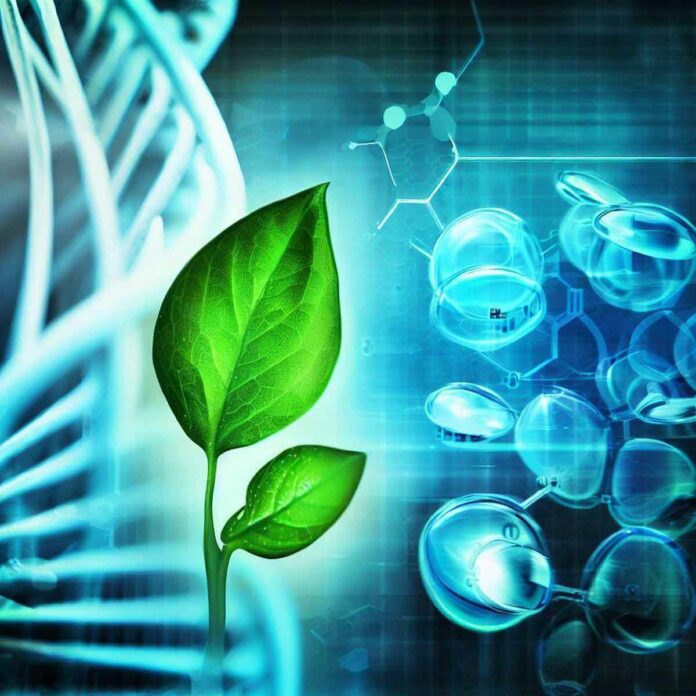Introduction: Synthetic biology is revolutionizing our approach to biological systems by combining biology, engineering, and computer science.
Through DNA manipulation and genetic engineering, scientists can design and create organisms, develop sustainable biofuels, produce pharmaceuticals, and engineer innovative materials.
In this article, we explore the world of synthetic biology, its applications, breakthroughs, and ethical considerations.
Understanding Synthetic Biology:
Synthetic biology involves designing artificial biological systems with desired functionalities.
Scientists manipulate genetic information by introducing synthetic DNA sequences or building new organisms from scratch.
By understanding genetic circuits, protein engineering, and cellular systems, cells can be programmed to perform specific tasks, similar to programming a computer.
Applications of Synthetic Biology:
Synthetic biology finds applications in medicine, where bacteria are engineered to produce drugs like insulin and antibiotics more efficiently and cost-effectively.
It also offers the potential for personalized medicine tailored to an individual’s genetic makeup.
In agriculture, synthetic biology enhances crop productivity, creates disease-resistant plants, and develops biofertilizers, reducing reliance on harmful chemicals.
This approach addresses food security and reduces environmental impact.
The energy sector benefits from synthetic biology through the engineering of microorganisms that efficiently convert biomass into renewable fuels like bioethanol and biodiesel.
This contributes to the fight against climate change.
Ethical Considerations:
Ethical considerations accompany synthetic biology. Questions about biosecurity, environmental impact, and potential misuse arise due to the ability to manipulate and create life forms.
Guidelines and regulations ensure responsible research and application.
Open dialogue and transparency among stakeholders strike a balance between scientific advancement and ethical concerns.
Future Prospects:
Synthetic biology is evolving rapidly with advancements in DNA synthesis and editing technologies like CRISPR-Cas9.
Precise genetic engineering is becoming more accessible. Synthetic organisms capable of complex tasks and new biological systems designed to tackle global challenges may emerge.
Collaboration among scientists, engineers, policymakers, and the public is vital for responsible and sustainable progress.
Synthetic biology has the potential to address healthcare, sustainability, and other global issues, shaping a better future.
Frequently Asked Questions about Synthetic Biology:
Synthetic biology encompasses a broader approach than genetic engineering. Genetic engineering modifies specific genes or introduces new ones, while synthetic biology aims to design and construct new biological systems or organisms.
Safety is a top priority in synthetic biology. Strict protocols and guidelines ensure that engineered organisms don’t pose risks to human health or the environment. Regulatory bodies collaborate with researchers to establish safety measures and assess potential risks.
The potential for misuse and biosecurity risks exists, but the synthetic biology community takes these risks seriously. Safety measures, regulations, and responsible research practices mitigate concerns. Collaboration addresses potential risks.
Ethical considerations include biosecurity, environmental impact, and equity in access to technology benefits. Responsible research, transparency, public engagement, and addressing socioeconomic implications are vital.
Synthetic biology offers solutions for sustainability challenges. It enables the development of sustainable biofuels, bio-based materials, and eco-friendly agricultural practices. It also reduces environmental impact by enhancing production processes and reducing waste.
Yes, synthetic biology holds promise in medicine. Bacteria and organisms can be engineered to produce drugs more efficiently. Personalized medicine approaches tailored to an individual’s genetic makeup are also being explored.
Advances in DNA synthesis and editing technologies have made synthetic biology more accessible. Reduced costs and open-source tools facilitate research collaboration and knowledge sharing.
Synthetic biology’s future is promising. Advances in technology and biological understanding may lead to the development of more complex synthetic organisms and revolutionary applications in healthcare, agriculture, energy, and sustainability.
Interested individuals can explore academic programs, research opportunities, and interdisciplinary collaborations in synthetic biology. Participating in conferences and joining synthetic biology communities or organizations provides avenues for contribution.

